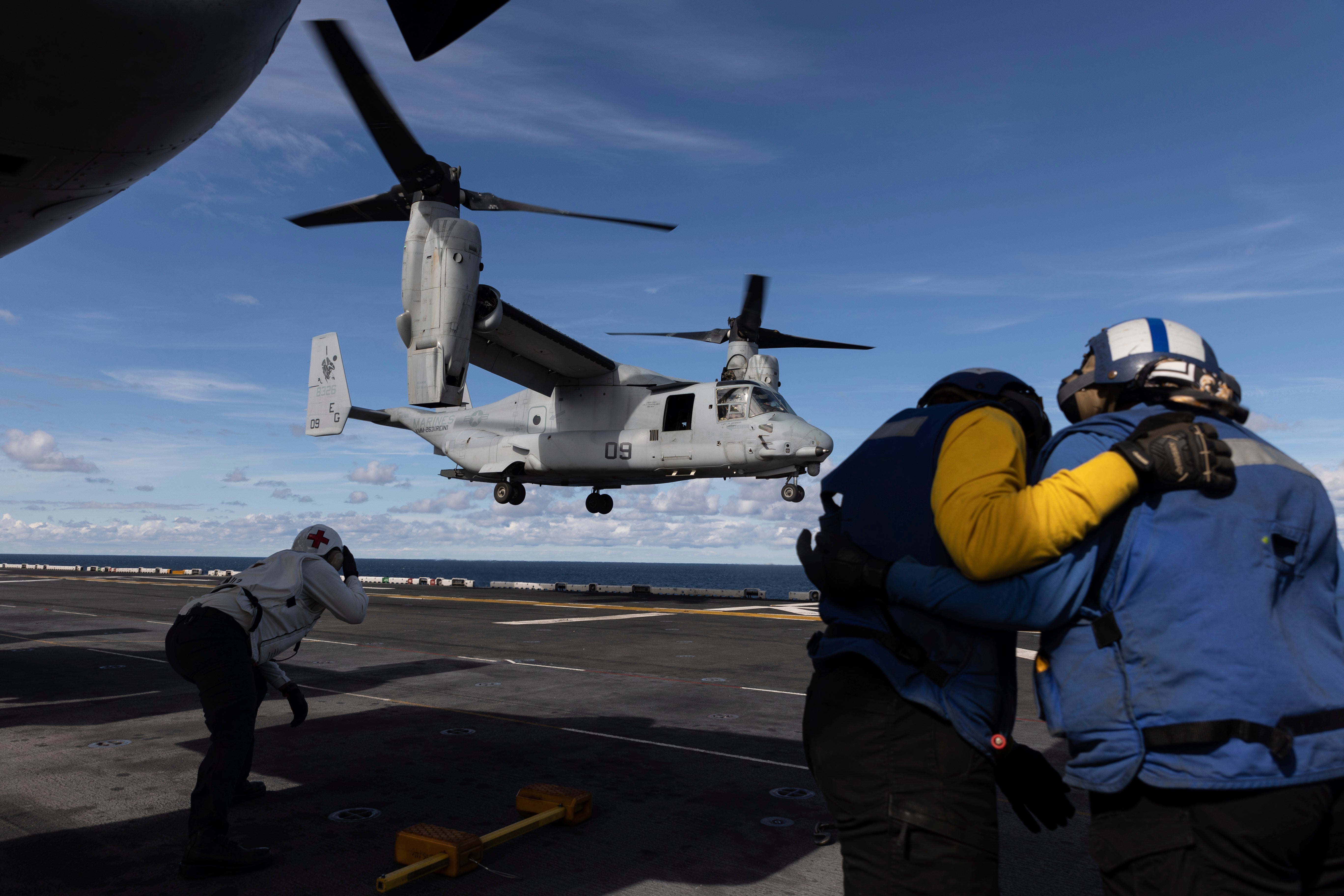The Independent's journalism is supported by our readers. When you purchase through links on our site, we may earn commission.
After I left the Marines, I needed help. Instead, I was given a list of pills
The list of powerful antipsychotics, antidepressants and other medications I was being prescribed had increased to eighteen pills every day. I lined the opioids up on the table and popped them one by one


Your support helps us to tell the story
From reproductive rights to climate change to Big Tech, The Independent is on the ground when the story is developing. Whether it's investigating the financials of Elon Musk's pro-Trump PAC or producing our latest documentary, 'The A Word', which shines a light on the American women fighting for reproductive rights, we know how important it is to parse out the facts from the messaging.
At such a critical moment in US history, we need reporters on the ground. Your donation allows us to keep sending journalists to speak to both sides of the story.
The Independent is trusted by Americans across the entire political spectrum. And unlike many other quality news outlets, we choose not to lock Americans out of our reporting and analysis with paywalls. We believe quality journalism should be available to everyone, paid for by those who can afford it.
Your support makes all the difference.In 2014, a year after I left the Marines, I was drinking to self-medicate, the nightmares were constant and the flashbacks of the IED blast in Helmand Province that ended by combat career and killed two of my friends showed no signs of stopping. Not an hour would go by without me thinking about how I’d sent them into that building in Marjah rigged with explosives. I felt the guilt of their deaths over and over again.
My hallucinations were so severe that I would hear my wife Bobbie or my son Ethan calling out for me, even if they weren’t at home. Or I would suddenly smell a smoke grenade, or feel the heat of the Afghanistan sun while standing in the middle of a store.
Bobbie couldn’t sleep in a separate room to avoid my rage and violent flashbacks, because I would sleepwalk, and she needed to keep track of me. She went back to my Marine command begging to get me help so she could protect herself, and was simply told to hide any weapons we had behind a locked wooden door. I’d just spent three years kicking down locked wooden doors to get into mud buildings in Afghanistan. I would have no problem getting my hands on something dangerous if I tried. Luckily, we didn’t have any guns in the house.
The list of powerful antipsychotics, antidepressants and other medications I was being prescribed had increased to eighteen pills every day. I lined the opioids up on the table and popped them one by one. There was a bottle for depression, another for seizures, one to help me sleep, another for panic attacks, one for anxiety, another for low testosterone, and medication for ulcers. The list was endless and included Vicodin, the highly addictive painkiller I had been given after an accident during training 13 years earlier when I hit my head on a rock in the ocean and fractured my skull.
The drugs the VA loaded me up on while I waited to see a doctor or specialist horrified Bobbie, and she would spend hours online researching the side effects to make sure I was safe. During her scrolling online, she found out that sumatriptan succinate — the pill I took to help ease my migraines — could have terrible effects if mixed with some of the other medications I had a prescription for, such as the antidepressant paroxetine.
I developed stomach problems, and would spend hours throwing up in the bathroom because of the damage all those pills did on my body. Bobbie told my doctors she would refuse to let me take them, but they kept filling out scripts. They believed it would help mask my suffering when all it did was make it worse.
The staff thought I could fend for myself with this magical collection of pill bottles — and as I did more research, I came to realize this was a structural problem in VA care. The number of US veterans addicted to opioids at the same time as I was given my endless prescriptions — between 2010 and 2015 — was 68,000. Many of these cases stemmed from overprescription.
For Bobbie, it was like she had two children — me and Ethan. Our house turned into a gallery of Post-It notes and lists with tasks and instructions because my memory was still failing me. I had to be supervised when cooking. I wasn’t getting better, and I knew my brain would never heal. I kept imagining what it would be like if I went back overseas to fight alongside my buddies. I would get excited, and then I would realize it was never going to happen. Before 2010, I was outgoing and socialized with my friends, but Bobbie now struggled to get me out of the house, unless my day was planned out meticulously with an itinerary.
Weed was the only thing that actually helped. I first smoked cannabis in the winter of 2014, after an appointment with a psychiatrist. For an hour she made me go through the most traumatic moments of my time as a Marine, laid out a suggested treatment plan, and then said, “I really shouldn’t be saying this, but I wish I could prescribe you cannabis.” I ended up smoking with my neighbor and we sat, laughed, and watched TV.
Cannabis stopped my nightmares and dark thoughts, so I started lighting up a pipe twenty minutes before bed in order to get a peaceful night’s sleep. It worked better than the medication the VA was giving me, and it meant that I wasn’t being an angry asshole to Bobbie, or flying off the handle at the smallest spark. I dropped some of the prescriptions and my health started improving.
But I shouldn’t have had to rely on marijuana to make me feel normal — especially while I was still struggling to get regular help for my traumatic brain injuries. Even while I was working with the Veterans Benefits Administration, I was always caught up in a backlog, forced to wait days and sometimes weeks to see or even talk to someone.
Bobbie was the only person I could truly talk to. She was the last line of defense keeping me alive, and she tried to keep me on course when I started to drift — but there was only so much she could take.
Some have good experiences with the VA and others simply don’t need their care. Others, like me, struggle when it should be far easier.
They should be able to get a doctor’s appointment without waiting for weeks weeks and without being given a laundry list of prescription medication as a stop-gap solution. They should be given the decency of care after risking their lives thousands of miles away.
I’m not the only one affected by these issues. There are men and women who need help now, and there will be many more in the future. Every day is a battle, and unfortunately it looks like it will be for generations.
‘The Shot: The Harrowing Journey of a Marine in the War on Terror,’ by Bill Bee and Wills Robinson, is published this month by Knox Press
Join our commenting forum
Join thought-provoking conversations, follow other Independent readers and see their replies
Comments